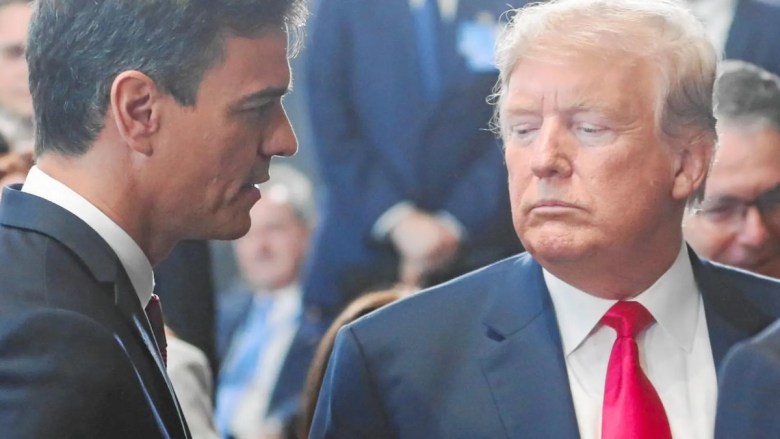Politics
Spain’s Huawei Decision Sparks Potential US Sanctions

The United States may impose significant repercussions on Spain following Prime Minister Pedro Sanchez’s stance regarding Huawei technology. The Sanchez administration recently asserted that using Huawei systems for Spanish judicial wiretaps does not pose a national security threat. This position has drawn scrutiny from the Trump administration and US lawmakers, who view the integration of Chinese technology into sensitive infrastructure as a direct challenge to national security.
The US government has prioritized countering the influence of Chinese hardware and software in both its own operations and those of its allies. As a member of NATO and a key partner, Spain’s decision to downplay potential risks associated with Huawei contradicts the United States’ strategic interests. A failure to address this inconsistency could lead to a perception of leniency towards Spain, undermining the US’s broader foreign policy objectives.
In Washington, discussions have emerged regarding potential responses to Sanchez’s policy. These may include targeted sanctions aimed at freezing assets and restricting travel for Spanish individuals and entities accused of corruption, organized crime, human rights violations, or anticompetitive practices. Notable examples of organizations that could be affected include La Liga and the Spanish Socialist Workers’ Party.
Additionally, the US may reconsider its defense and intelligence cooperation with Spain. Options could involve limiting defense trade, relocating US military forces stationed at Spanish bases, or even suspending Spain’s access to US intelligence-sharing platforms. Such measures would significantly impact Spain’s national security and its foreign policy standing.
Support for stringent actions against Spain appears to be building within the US Congress. The Republican Party, in particular, remains unified in demanding that allies align closely with US positions concerning China. Currently, such alignment is notably absent from Spain’s approach, prompting calls for a shift in strategy from both political elites and constituents.
Sanchez’s current predicament stems from his administration’s high-stakes political maneuvering since taking office. By prioritizing relations with China over established partnerships with the United States, he risks jeopardizing the bilateral strategic partnership. The potential fallout could be severe, with long-lasting implications for US-Spain relations.
To navigate this complex situation, it would be prudent for the Sanchez administration to seek bipartisan counsel from the Spanish Ministry of Defense and the National Intelligence Center. If domestic political considerations were set aside, these institutions would likely advise against prioritizing relations with the People’s Republic of China over those with the United States.
As the situation unfolds, both Spain and the US face a critical juncture that could redefine their diplomatic ties. The coming weeks will be crucial as the Sanchez administration must decide how to approach this delicate balance of international relations.
-

 Business5 months ago
Business5 months agoKenvue Dismisses CEO Thibaut Mongon as Strategic Review Advances
-

 Lifestyle4 months ago
Lifestyle4 months agoHumanism Camp Engages 250 Youths in Summer Fest 2025
-

 Sports4 months ago
Sports4 months agoDe Minaur Triumphs at Washington Open After Thrilling Comeback
-

 Sports5 months ago
Sports5 months agoTupou and Daugunu Join First Nations Squad for Lions Clash
-

 Top Stories5 months ago
Top Stories5 months agoColombian Senator Miguel Uribe Shows Signs of Recovery After Attack
-

 World5 months ago
World5 months agoASEAN Gears Up for Historic Joint Meeting of Foreign and Economic Ministers
-

 Health4 months ago
Health4 months agoNew Study Challenges Assumptions About Aging and Inflammation
-

 Business5 months ago
Business5 months agoOil Prices Surge Following New EU Sanctions on Russia
-

 Entertainment4 months ago
Entertainment4 months agoDetaşe-Sabah Violin Ensemble Captivates at Gabala Music Festival
-

 Entertainment4 months ago
Entertainment4 months agoBaku Metro Extends Hours for Justin Timberlake Concert
-

 Top Stories5 months ago
Top Stories5 months agoRethinking Singapore’s F&B Regulations Amid Business Closures
-

 Business5 months ago
Business5 months agoU.S. House Approves Stablecoin Bill, Sends to Trump for Signature









